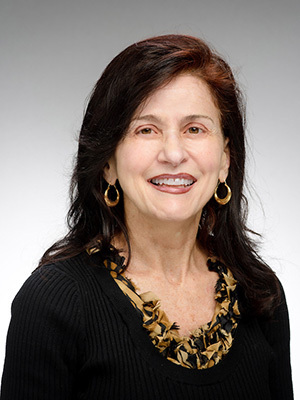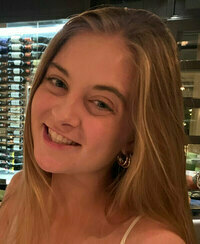Through new online class and UN partnership, Notre Dame students teach Italian to African refugees
Tiziana Serafini, a native of Rome and a teaching professor of Italian at the University of Notre Dame, was transfixed in August 2021 after seeing images of Afghanistan refugees crowding into a U.S. military cargo plane. Several people hung onto the outside of the plane before they fell to the ground after takeoff.
While the video and images told an immediate life-and-death story, Serafini’s thoughts later drifted to the next steps for the people on the plane who were about to arrive in a different country.
“They have to learn a language to lead a new life. Then I thought, there must be a need for foreign-language teachers,” she said.

That moment inspired Serafini to develop a new service-learning course that could offer a solution for refugees and empower Notre Dame Italian students to become educators themselves — by teaching basic Italian to African refugees before they relocate to Italy.
In the process, the Notre Dame students sharpened their Italian skills, learned how to teach others and developed global awareness and empathy for the refugee experience.
“Language is vital. It’s at the center of our beings. We need to communicate,” she said. “And if we speak different languages, we have to find a common way to communicate. What better way than to put your knowledge to the service of another person who is in need?”
She partnered with the Office of Digital Learning to offer the online course, called Learning and Teaching Beyond the Classroom, and co-taught it last summer with Suzanne Shanahan, the Leo and Arlene Hawk Executive Director of the Center for Social Concerns. Serafini plans to lead it again this spring and perhaps regularly going forward.
“We really need to rethink the teaching of foreign languages,” Serafini said. “We need to be thinking in terms of the social needs that we see arising in societies every day, more and more with all the wars and tumultuous situations we see in the world.”
Last summer, the course began with five undergraduates — including majors from the College of Arts and Letters, College of Science and Mendoza College of Business — and one graduate student engaged in experiential and service learning. Serafini and the students met with the refugees virtually in their African camp, and in three weeks, they covered a semester of Italian for beginners.
The refugees, who previously lived in the Congo, Nigeria and South Africa, were eager to learn the language and customs of the places in Italy they would go. For each lesson, the African students huddled around one screen in their refugee camp, about five students at a time, to learn the basics of introducing themselves, talking about their day and communicating in social settings.
The lessons were assisted by the fact that the students all spoke English, even though their native languages included Kiswahili, Lingala, Kinyarwanda and Swahili. Some also spoke French.
“We saw a tremendous amount of motivation,” Serafini said. “Whenever we hit a stumbling block, at least we were able to communicate in English.”
Eager to learn

The class attracted sophomore Gabe Biondo, who spent summers as a youth visiting grandparents in Sicily, where they lived near a refugee facility. This summer, he plans to work with physicians in northern Italy at a medical center for refugees.
Biondo said the class accomplishes Serafini’s goal of developing the global perspective while putting the refugees in a position to overcome language barriers when they reach their new homes.
“In communicating with the refugees, it was interesting to see how passionate they were about learning and asking for more sessions to increase their learning of Italian,” said Biondo, who is majoring in Italian and neuroscience and behavior. “They really are very happy to be given this opportunity to move to Italy and have a new life, which was really inspiring. You could see the effect of your work; it’s not being taken for granted. It’s really appreciated.”

That appreciation came during class questions and feedback that was followed by emails in which the refugees requested more sessions and talked about the class being well-organized.
“They were all really eager to learn,” Biondo said.
Tricia McCormack, a junior history major, said the experience demonstrated how crucial language is for human connection.
“This is an incredibly valuable experience because human culture, language and histories are the roots of personhood and are ultimately what bind people together across the world,” McCormack said. “I believe that widespread appreciation for other cultures, histories and languages would ultimately facilitate a more peaceful world.”
Globally speaking
To establish the connection between Notre Dame and the African refugee camp, Serafini collaborated with the United Nations High Commissioner for Refugees (UNHCR), Caritas Italiana (the charitable arm of the Italian Bishops Conference) and faculty from the University for Foreigners in Perugia and the University of Siena.
The UNHCR has coordinated Italian classes for refugees since 2019 with a consortium of 32 Italian universities. Notre Dame is the only American university working with the consortium.
After last summer’s course, Notre Dame students were surveyed about the experience and cited compassion as a transferable skill they acquired. They also reported developing empathy and social awareness, and that their confidence increased after working with refugees.
They all agreed that they are now able to identify and apply information from the class to address real-world problems — and several students wished the class had run even longer.
“I hope the students will appreciate that this course makes them go from the personal to the social to the global. It’s not just doing something for yourself; of course we want to do something for ourselves,” Serafini said. “But in an affluent society like the one we live in, we have the luxury to entertain the idea that we can help others, and I think it will make our life so much more meaningful.”
Latest Colleges & Schools
- Prioritizing prenatal care may decrease low birth weight outcomes in The Gambia, Notre Dame research findsA new study co-authored by University of Notre Dame researchers highlights the importance of prenatal care for improving the health of mothers and newborns, providing evidence that can inform policy.
- Partial peace deals may facilitate comprehensive accords, offering roadmap for policymakers, practitionersPartial peace agreements — deals that address targeted issues on the way to larger comprehensive accords — could provide a blueprint for peacebuilding policymakers and practitioners, according to new University of Notre Dame research.
- Notre Dame Law School launches new Veterans Law ClinicNotre Dame Law School is launching a new Veterans Law Clinic, dedicated to providing free legal assistance to U.S. military veterans in matters such as disability claims and appeals.
- City of Gary and Notre Dame’s Housing and Community Regeneration Initiative announce vision and action plan for downtown GaryThe City of Gary and the University of Notre Dame School of Architecture’s Housing and Community Regeneration Initiative announced a “Vision and Action Plan” for downtown Gary during a news conference Tuesday (May 27). The final report serves as a roadmap for Gary’s leadership to follow to reestablish the city’s building culture.
- Notre Dame Executive MBA offers scholarships to area leadersMichiana Forty under 40 honorees can receive $30,000 toward tuition for the Notre Dame EMBA program.
- Kenneth Scheve appointed dean of the University of Notre Dame’s College of Arts and LettersKenneth Scheve, the Dean Acheson Professor of Political Science and Global Affairs and the dean of social science at Yale University, has been appointed the I.A. O’Shaughnessy Dean of the College of Arts and Letters by University of Notre Dame President Rev. Robert A. Dowd, C.S.C. Scheve, who will also hold a tenured faculty position in the Department of Political Science, begins a five-year term as dean on July 1.













